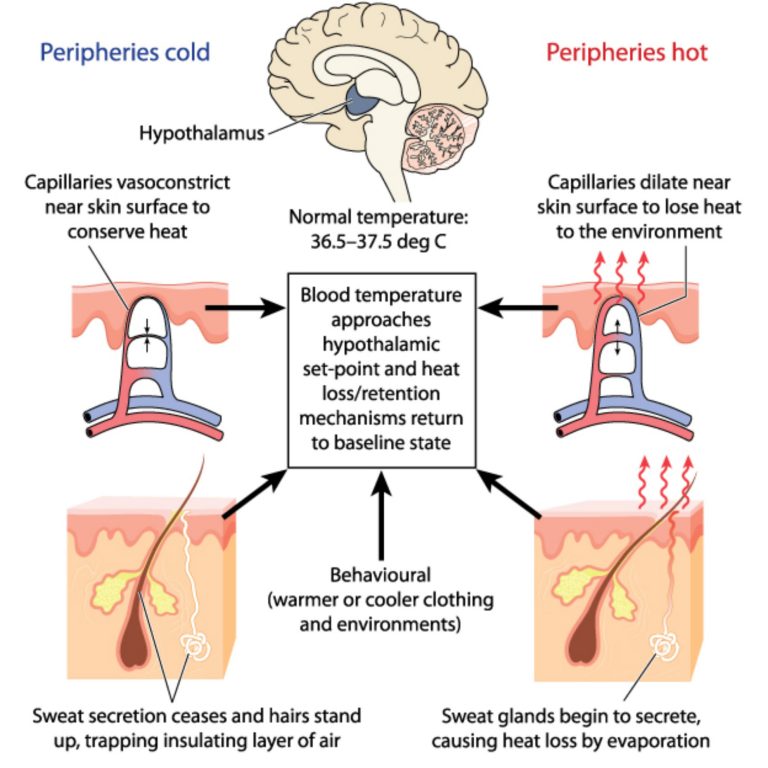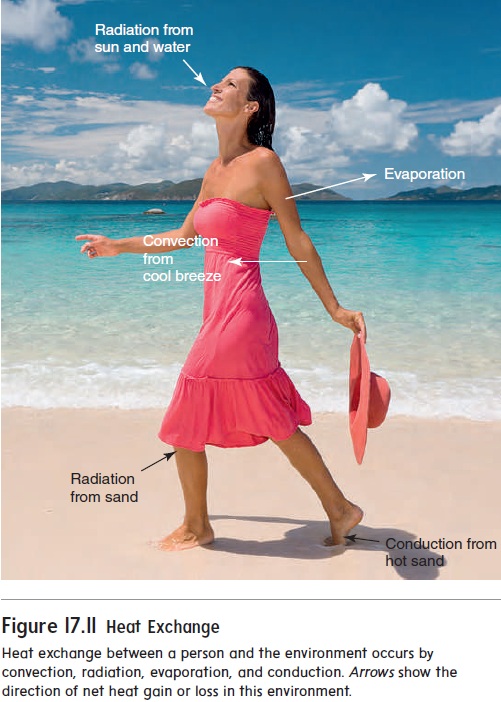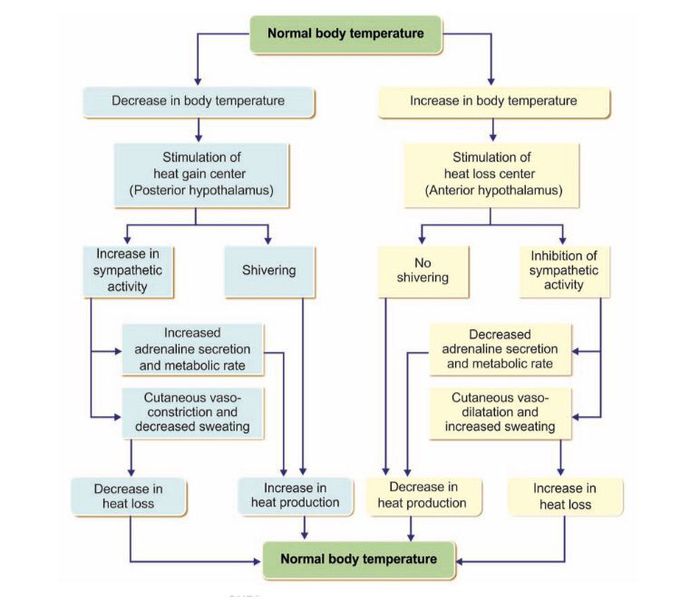Dementia And Body Temperature Regulation
Dementia is a condition that affects millions of people worldwide, causing a decline in cognitive abilities and often leading to memory loss, impaired thinking, and changes in behavior. Along with these cognitive symptoms, dementia can also have an impact on various bodily functions, including the regulation of body temperature. In this article, we will explore how dementia can affect body temperature regulation and what measures can be taken to manage this aspect of the condition.
How does dementia affect body temperature regulation?

The regulation of body temperature is a complex process involving various mechanisms in the body, primarily controlled by the hypothalamus. However, in individuals with dementia, the brain's ability to regulate body temperature may be impaired. This can lead to difficulties in maintaining a stable body temperature, resulting in fluctuations that could be potentially harmful.
Individuals with dementia may experience both hyperthermia (elevated body temperature) and hypothermia (lowered body temperature). These temperature dysregulations can occur due to a combination of factors, including:
- Impaired hypothalamus function: The hypothalamus plays a crucial role in maintaining body temperature within a narrow range. In individuals with dementia, the dysfunction of the hypothalamus can disrupt this temperature control process.
- Reduced awareness or recognition of temperature changes: Dementia can impact an individual's ability to perceive and react to changes in their environment, including temperature. They may not adequately respond to hot or cold conditions, increasing the risk of temperature-related complications.
- Medication side effects: Some medications commonly prescribed for dementia-related symptoms may have an impact on body temperature regulation. Certain medications can interfere with the body's ability to dissipate heat or conserve warmth, leading to temperature imbalances.
- Underlying medical conditions: Dementia is often accompanied by other health conditions, such as infections or cardiovascular issues, which can further disrupt body temperature regulation.
Managing body temperature in individuals with dementia
Ensuring optimal body temperature is crucial for the well-being of individuals with dementia. Here are some strategies that caregivers and healthcare professionals can employ to manage body temperature regulation:
1. Maintain a comfortable environment
Creating a comfortable living environment plays a vital role in regulating body temperature. Keep the surroundings at a moderate temperature, avoiding extreme heat or cold. Maintain good ventilation and use appropriate clothing or bedding to aid in temperature regulation.
2. Monitor body temperature regularly
Regularly monitoring body temperature can help detect any significant fluctuations early on. Keep a thermometer on hand and measure body temperature regularly, especially during periods of extreme weather conditions or if the individual shows signs of discomfort.
3. Stay hydrated
Proper hydration is essential for maintaining a stable body temperature. Individuals with dementia may have difficulties recognizing thirst or may forget to drink water. Encourage and remind them to drink fluids at regular intervals to prevent dehydration and regulate body temperature.
Frequently Asked Questions (FAQs)
Q: Can dementia cause fever-like symptoms?

A: Yes, dementia can sometimes cause fever-like symptoms, including an elevated body temperature. This can occur due to the brain's impaired ability to regulate body temperature effectively.
Q: How can I tell if someone with dementia is experiencing hypothermia?
A: Signs of hypothermia in individuals with dementia may include shivering, pale skin, confusion, drowsiness, and a slowed heart rate. If you suspect hypothermia, it is crucial to seek medical attention immediately.
Q: Are there any medications available to manage body temperature dysregulation in dementia?
A: Currently, there are no specific medications designed solely to manage body temperature dysregulation in dementia. However, treating any underlying conditions contributing to temperature dysregulation may help alleviate symptoms.
Q: Can changes in body temperature worsen dementia symptoms?
A: Fluctuations in body temperature can potentially worsen dementia symptoms temporarily, leading to increased confusion, agitation, and behavioral changes. Maintaining a stable body temperature is important to minimize these effects.
Q: What should I do if I notice extreme temperature changes in someone with dementia?
A: If you observe extreme or concerning temperature changes in someone with dementia, it is recommended to seek immediate medical attention. Rapid temperature fluctuations can have severe consequences and need to be promptly addressed.
In conclusion, dementia can impact the body's ability to regulate temperature, leading to potentially harmful fluctuations. Caregivers and healthcare professionals should prioritize maintaining a comfortable environment, regular temperature monitoring, and proper hydration to manage this aspect of the condition. By employing these strategies and staying vigilant, individuals with dementia can enjoy a more comfortable and stable body temperature.
Dementia And Drop In Body Temperature - GIHC
dementia temperature drop body
Temperature Regulation In Animals - Biology Online Tutorial
 Image Source : www.biologyonline.com
Image Source : www.biologyonline.com temperature regulation hypothalamus controle capillaries dilation corporelle controllo corporea constriction température lichaamstemperatuur reproductive causing adaptation gland physiology biology capillary
Body Temperature Regulation RGB Color Icon Stock Vector Image & Art - Alamy
Neural Control Of Body Temperature - Mapametawan
 Image Source : mapametawan.blogspot.com
Image Source : mapametawan.blogspot.com Body Temperature Regulation
 Image Source : www.brainkart.com
Image Source : www.brainkart.com What To Do If I Have Problems With Body Temperature Regulation
Regulation Of Body Temperature - MEDizzy
 Image Source : medizzy.com
Image Source : medizzy.com Body Temperature Regulation, Temperature Regulation By Hypothalamus B
 Image Source : athletic.healthcare
Image Source : athletic.healthcare Body temperature regulation. Dementia temperature drop body. Neural control of body temperature. Temperature regulation in animals. Temperature regulation hypothalamus controle capillaries dilation corporelle controllo corporea constriction température lichaamstemperatuur reproductive causing adaptation gland physiology biology capillary